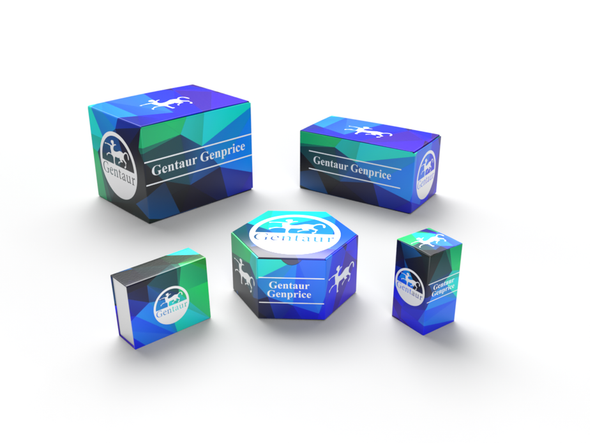Description
NFATC2 polyclonal Antibody | BS7497 | Gentaur UK, US & Europe Distribution
Host: Rabbit
Reactivity: Human,Mouse
Application: WB,IF
Application Range: WB 1:500 - 1:2000 IF 1:50 - 1:200
Background: This gene is a member of the nuclear factor of activated T cells (NFAT) family. The product of this gene is a DNA-binding protein with a REL-homology region (RHR) and an NFAT-homology region (NHR) . This protein is present in the cytosol and only translocates to the nucleus upon T cell receptor (TCR) stimulation, where it becomes a member of the nuclear factors of activated T cells transcription complex. This complex plays a central role in inducing gene transcription during the immune response. Alternate transcriptional splice variants encoding different isoforms have been characterized.
Storage & Stability: Store at 4°C short term. Aliquot and store at -20°C long term. Avoid freeze-thaw cycles.
Specificity: NFATC2 polyclonal Antibody detects endogenous levels of NFATC2 protein.
Molecular Weight: ~ 130 kDa
Note: For research use only, not for use in diagnostic procedure.
Alternative Names: cytoplasmic 2; KIAA0611; NF ATp; NF-ATc2; NF-ATp; NFAC2_HUMAN; NFAT 1; NFAT pre existing subunit; NFAT pre-existing subunit; NFAT transcription complex, preexisting component; NFAT1; NFAT1-D; NFATc2; NFATp; Nuclear factor of activated T cells cytoplasmic 2; Nuclear factor of activated T cells cytoplasmic calcineurin dependent 2; Nuclear factor of activated T cells pre-existing component; Nuclear factor of activated T-cells; T cell transcription factor NFAT 1; T-cell transcription factor NFAT1;
Immunogen: Recombinant full length Human NFATC2.
Conjugate: Unconjugated
Modification: Unmodification
Purification & Purity: The Antibody was affinity-purified from rabbit antiserum by affinity-chromatography using epitope-specific immunogen and the purity is > 95% (by SDS-PAGE) .
Pathway: NF-kB Signaling,STING Signaling,Inhibition of Apoptosis,






